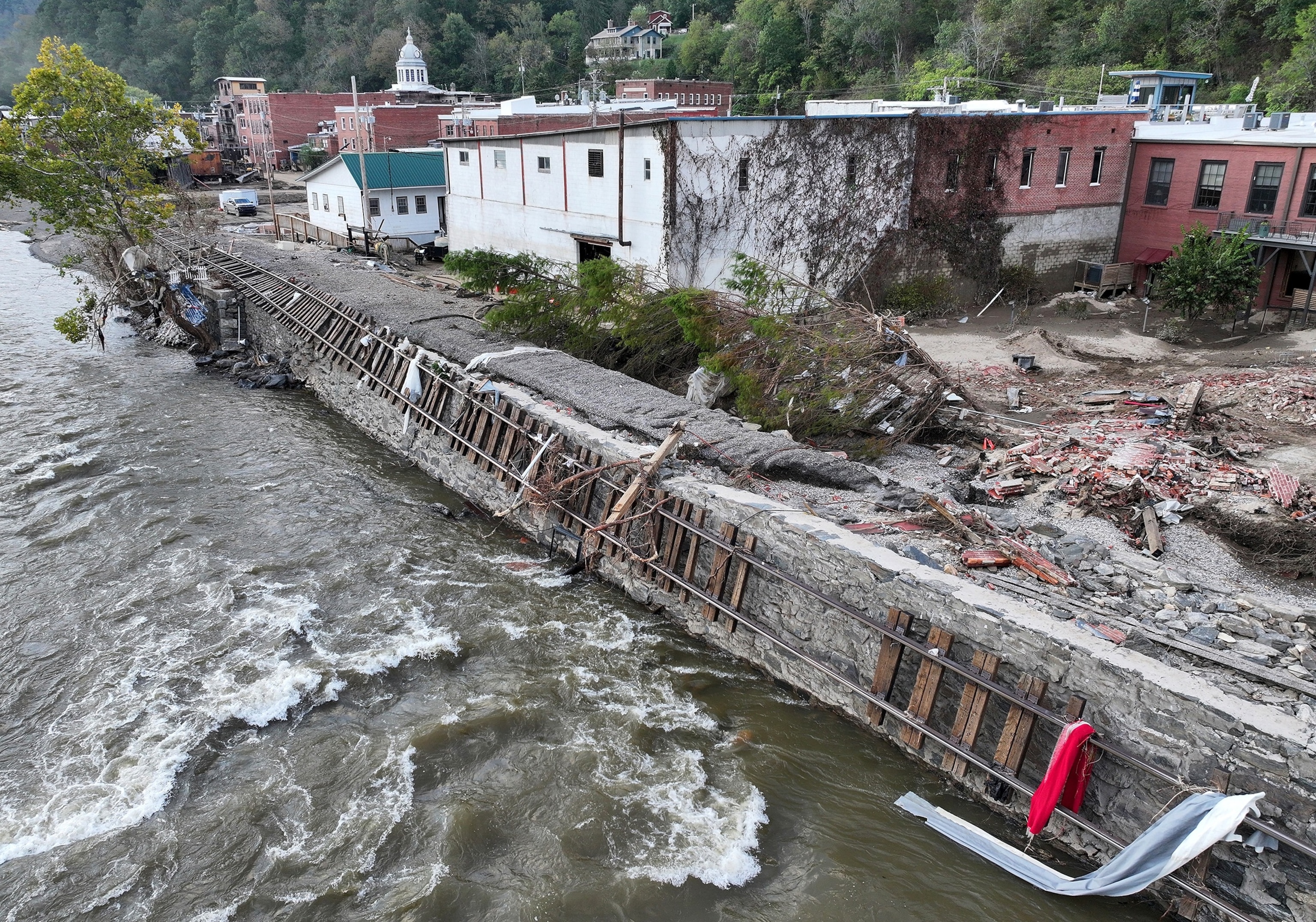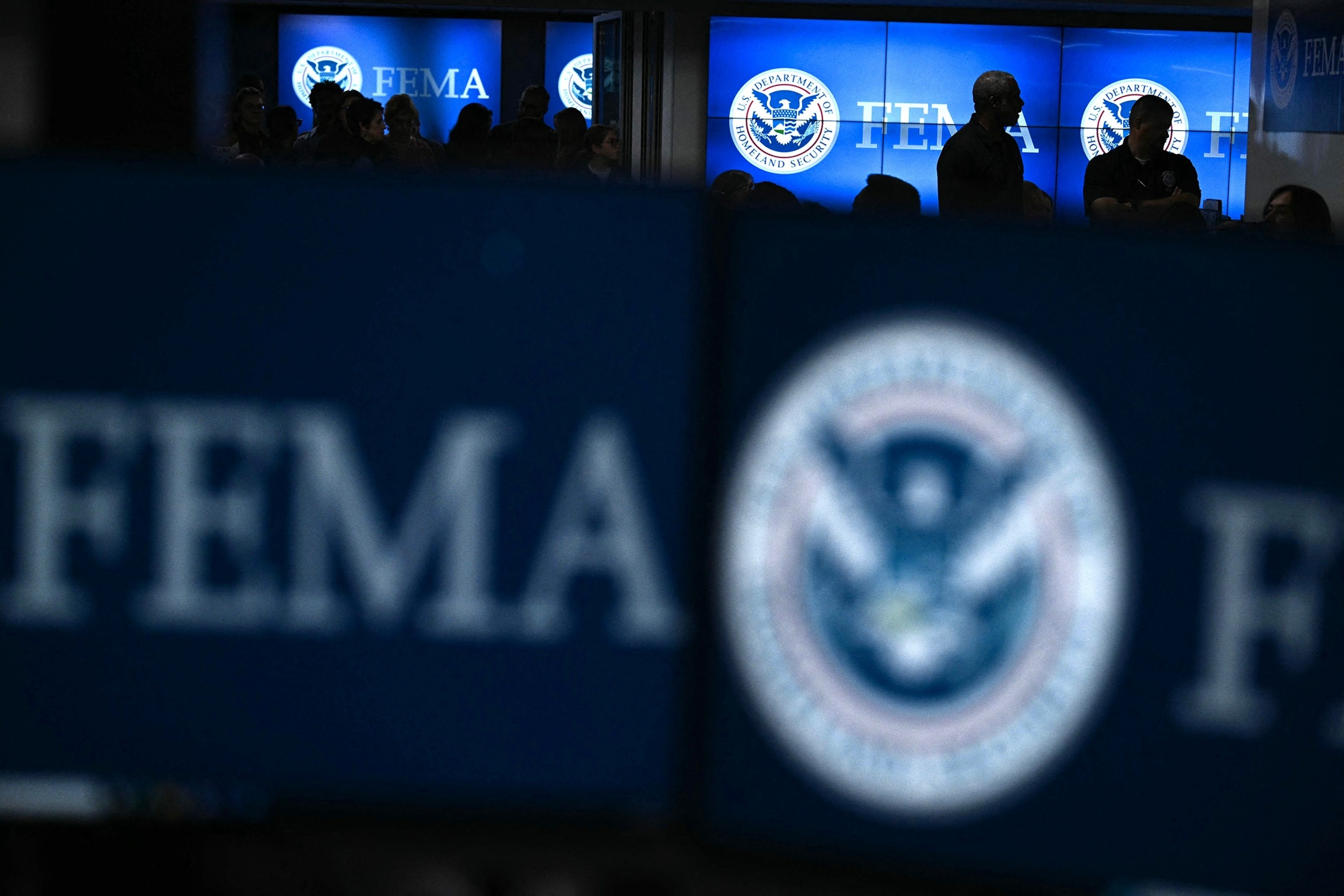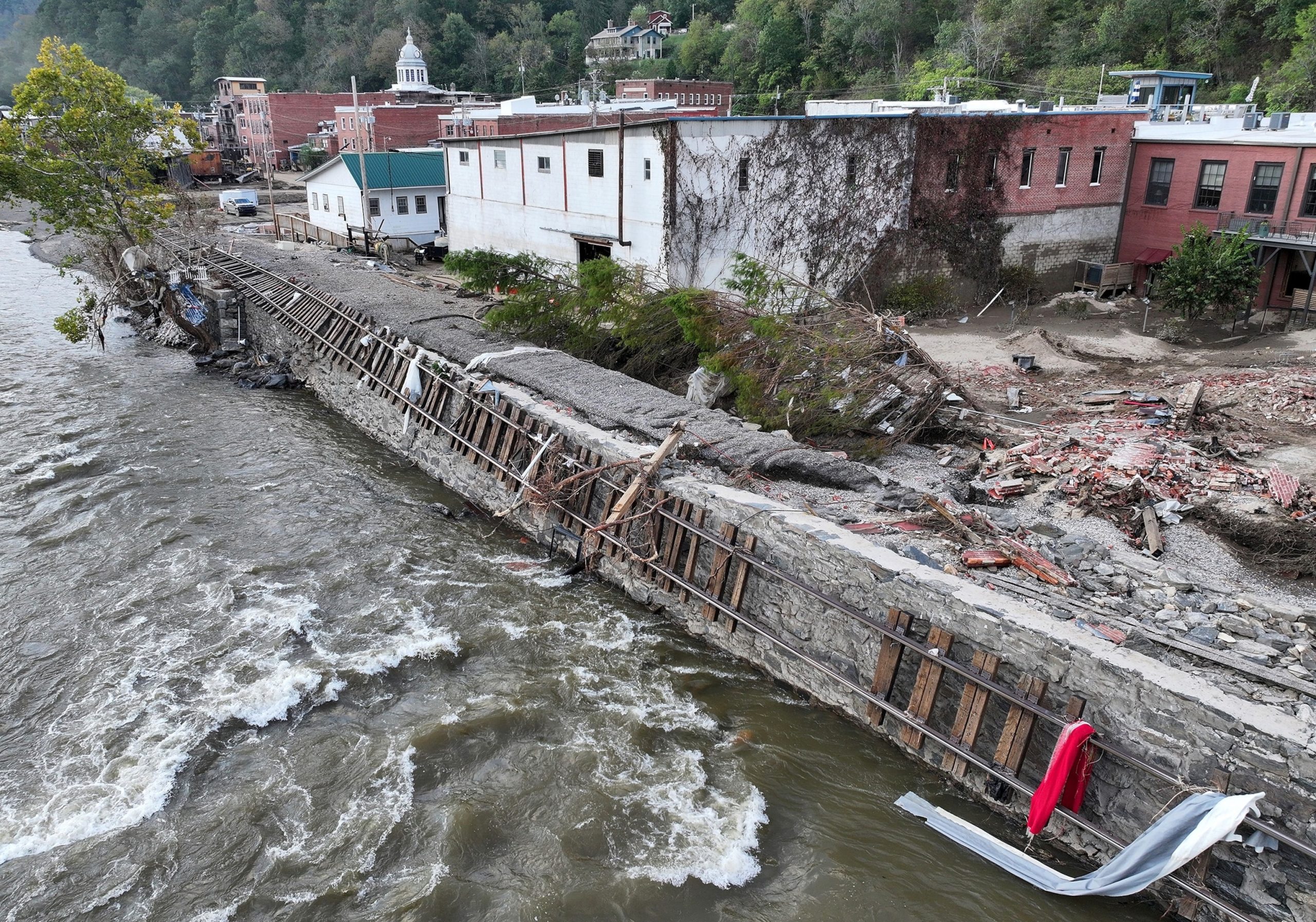Misinformation spread during Hurricane Helene‘s recovery efforts is “extremely damaging,” a top Federal Emergency Management Agency official said Monday.
“This type of misinformation is just, it’s damaging to the overall efforts,” Keith Turi, FEMA’s acting director for response and recovery told ABC News Live anchor Kyra Phillips. Turi added that conspiracy theories are “stopping people from registering for assistance with FEMA, for coming to FEMA for help.”
At the White House on Monday, press secretary Karine Jean-Pierre decried people who are putting out false information.
“Unfortunately, scam artists and bad faith actors and others who are putting politics over people are promoting misinformation about our efforts, including falsehoods about federal assistance,” she said. “This is wrong and dangerous and must stop immediately. Elected officials at every level and on both side of the aisle have also called for an end to these conspiracy theories. False information following a disaster can discourage people from seeking critical assistance when they need it the most.”

In an aerial view, flood damage wrought by Hurricane Helene is seen along the French Broad River on Oct. 3, 2024, in Marshall, North Carolina.
Mario Tama/Getty Images
White House Communications Director Ben LaBolt and Director of Digital Strategy Christian Tom wrote in the memo that the White House has deployed a “robust, intensive, and whole-of-government” response to the storm and looked to counter some of the misinformation. The officials warned that false information could “discourage people from seeking critical assistance” and they want to encourage impacted Americans to seek FEMA assistance.
One of the falsehoods they took issue with is one that former President Donald Trump has pushed repeatedly on the campaign trail since Helene slammed into Florida’s Gulf Coast and dumped up to 30 inches of rain in some parts of the Southeast. Trump claimed that disaster funds were being used on immigrants who are in the U.S. illegally rather than Americans impacted by disasters.
“No money is being diverted from disaster response needs. None. FEMA’s disaster response efforts and individual assistance is funded through the Disaster Relief Fund, which is a dedicated fund for disaster efforts,” the memo said in response to those claims.
Vice President Kamala Harris, Trump’s opponent in the presidential race, encouraged those in disaster areas to take advantage of relief and called Trump out on Monday for his falsehoods.
“There’s a lot of mis- and disinformation being pushed out there by the former president about what is available, in particular to the survivors of Helene. And first of all, it’s extraordinarily irresponsible,” she said. “It’s about him, it’s not about you. And the reality is that FEMA has so many resources that are available for folks who desperately need them now and resources that are about helping people get back on their feet and rebuild and have places to go. You are entitled to these resources.”

A view inside FEMA headquarters as US Vice President and Democratic presidential candidate Kamala Harris attends a briefing about the impacts of Hurricane Helene and updates on the federal response, at Federal Emergency Management Agency (FEMA) headquarters in Washington, D.C., on Sept. 30, 2024.
Brendan Smialowski/AFP via Getty Images
FEMA has also launched a rapid response page to combat disinformation.
Intelligence officials on a call with reporters said they were “watching very closely” any foreign effort to spread mis- or disinformation with regard to the hurricane response.
Misinformation during natural disasters and other major events is not a new phenomenon, but can serve as a “gigantic distraction,” a former Federal Emergency Management Agency administrator told ABC News on Monday.
Peter Gaynor, who served as FEMA administrator during the Trump administration, said the agency is currently working hard to help people in areas that were hit hard by Helene.
Gaynor also worked for Commerce Secretary Gina Raimondo when she was governor of Rhode Island and at the city level in Providence, Rhode Island.
“The entire federal government is working hard to resolve a myriad of problems that are daunting for the citizens of North Carolina and Georgia,” Gaynor said.
Gaynor, who also ran the White House’s COVID task force, said it had to deal with misinformation on a daily basis.
“Misinformation is a gigantic distraction, and I think it’s amplified by the election,” he explained. “I think the election in 30 days or so is not helping. I think people are just looking for an advantage over their competitor, whether you’re a Republican trying to get advantage on a Democrat, or vice versa. The person in the middle or the agency in the middle, the people in the middle, in this case, is FEMA and our partners, and it’s such an unfair thing to do.”
During disasters, FEMA works in front of and behind the scenes to get things done, Gaynor said. For example, during Hurricane Dorian in 2019, FEMA had 2,500 tractor trailer trucks coming from everywhere in the country to South Florida.
“You’re not going to see FEMA trucks on the road, you will just see our private sector partners hauling our stuff, and then behind the scenes, the team is sending incident management teams to support local and state emergency managers with extra help. Again, you’re not going to see those teams flying banners or driving trucks that stay FEMA, but we’re there.”
As the disaster unfolds, Gaynor said FEMA works to assess the damage and get the resources they need to help local and state officials respond, and assign “mission assignments” to different parts of the government to help with the response. He said during his time at the local, state and federal levels, no decision was driven by politics.
“I would say it’s not happening today,” he said of the current disaster efforts.
“I don’t ask you for your ID. I don’t ask you how you voted. I don’t care if you’re a Democrat or Republican, or you just got into this country yesterday. I don’t care,” he said. “My job is to deliver you disaster relief, and that, as simple as that, when you start trying to separate disaster survivors into political groups, this thing completely fails.”
FEMA employees aren’t faceless federal government bureaucrats, he said, but are members of the community that are trying to help.
“They’re not doing anything to make your matter worse,” he said. “They’re dedicated to make your situation better.”
In the wake of Hurricane Helene, ABC News’ “Good Morning America” is providing five days of special coverage titled “Southeast Strong: Help After Helene” (#SoutheastStrongABC), spotlighting communities across the Southeast impacted by Hurricane Helene and the urgent efforts to help them recover.
In the aftermath of Hurricane Helene, which recently struck the East Coast, recovery efforts are well underway. However, amidst the chaos and devastation, there is another threat that officials are warning the public about: misinformation.
A FEMA official has issued a warning that misinformation during the recovery process can be harmful and hinder relief efforts. In a time when accurate information is crucial for those affected by the storm, false information can lead to confusion, panic, and even danger.
One of the most common forms of misinformation during a natural disaster is false reports of looting or violence. These rumors can spread quickly on social media and create unnecessary fear among residents and first responders. This can divert resources away from actual relief efforts and cause unnecessary stress for those already dealing with the aftermath of the storm.
Additionally, misinformation about road closures, shelter locations, and emergency services can also have serious consequences. People may be directed to unsafe areas or miss out on vital assistance if they are misinformed about where to go for help.
To combat misinformation during the recovery process, it is important for residents to rely on official sources for information. This includes local government websites, FEMA updates, and news outlets that have been verified as reliable sources of information.
It is also important for individuals to fact-check information before sharing it on social media or with others. By spreading accurate information and debunking false rumors, we can help ensure that those affected by Hurricane Helene receive the assistance they need in a timely and efficient manner.
In times of crisis, it is more important than ever to come together as a community and support one another. By staying informed and vigilant against misinformation, we can help ensure a smooth and successful recovery process for all those affected by Hurricane Helene.



